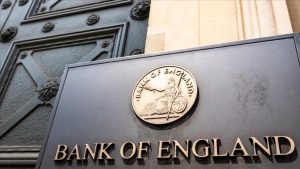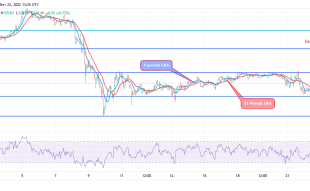Join Our Telegram channel to stay up to date on breaking news coverage
The deputy governor at the Bank of England, Jon Cunliffe, has said that the United Kingdom might need a digital pound. Cunliffe said this while discussing the recent collapse of the FTX cryptocurrency exchange and how this would influence the UK’s decision to issue a central bank digital currency.
BoE deputy governor says there is a need for a digital pound
Cunliffe had earlier said that he had initially believed that there was no link between the FTX collapse and the role of the central bank in creating a central bank digital currency. However, he said that he understands the concerns of the public on CBDCs and the safety of user funds on exchanges.
While speaking at a conference at the Warwick Business School of Coventry, Cunliffe said that “over the past few days, I have had a few comments both to the effect that the collapse of FTX shows that we need to get on and issue a digitally native pound – and to the effect that FTX shows that we do not need do so.”
He also added that FTX was a significant symbol of emerging technologies and how these technologies could transform financial services and change the forms of money.
The FTX exchange filed for Chapter 11 on November 11 after a liquidity crunch. Users rushed to withdraw funds from the exchange after Binance’s CEO, Changpeng “CZ” Zhao, said the exchange would liquidate all its FTT holdings. A previous Coindesk article also revealed that Alameda Research, a sister company of FTX, has a weak balance sheet.
Cunliffe opined that the crypto market needed to be duly regulated to protect investors, promote financial stability, and support innovation. He also added that the existing regulatory framework for the traditional financial sector also needed to cover the crypto space.
“Our approach as regulators should be open – by which I mean we should be prepared to explore whether and if so, how the necessary level of assurance equal to that in conventional finance could be attained. But we should also be firm that where it cannot, we are prepared to see innovation at the cost of higher risk,” he added.
Crypto regulations in the UK
The UK parliament is currently considering legislation supporting crypto assets as financial instruments and ensuring that the regulators have more control in the sector.
If this proposal is passed, the Bank of England will regulate the crypto firms that issue stablecoins. The BoE will start a consultation phase into stablecoins in 2023 to understand how these assets maintain transparency, accountability, governance, and corporate structure and meet the standards within the financial sector. He added that the situation with FTX showed that these aspects were important.
The BoE has been looking into the issuance of a digital pound, saying that it was prompted by trends within the payment sector, such as reducing the role of cash in the modern world and the digitization of daily life.
Related
- Bank of England seeks $420M funding to regulate crypto
- Bank Of England Releases Its Discussion Paper Regarding CBDCs
- Bank Of England Sends Delegate to International Conference on CBDCs
Join Our Telegram channel to stay up to date on breaking news coverage


